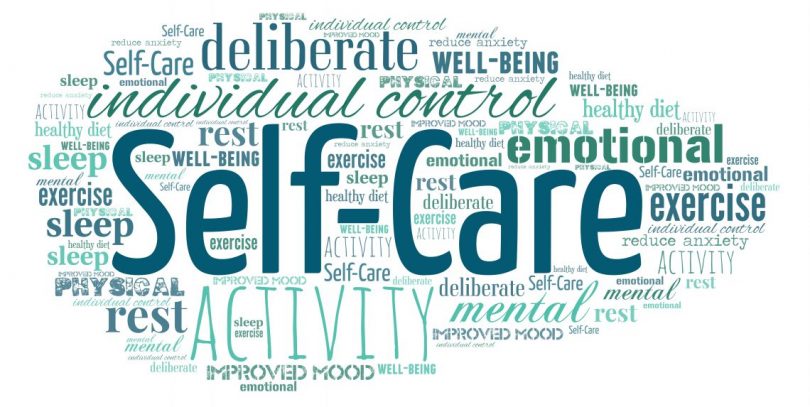COVID-19, and our new living and working arrangements, provide a unique opportunity for the international development sector to stop and reflect on how we do business.
In the last two years I have been reflecting on international development culture and practice, and conducting interviews with people working in the sector, to gain an understanding of what people are experiencing and feeling. More information about these reflections can be found in my recent blogs. In short, so many people I have talked to grew up with a dream of changing the world but many of them are now feeling stressed, anxious, jaded, tired, frustrated, burnt out, and stuck. In an effort to change the world they have lost sight of how to take care of themselves.
I also found that a mindset of lack (do more with less), and hustle, permeates our organisations, and the ways in which we manage our people and our resources. A big frustration named by many international development workers is that the organisations they work for fail to ‘walk their talk’ internally. An internal culture of lack, and hustle, is greatly and negatively impacting on the way people are leading and managing their teams.
As a result of my interviews and reflections, I have been advocating for a greater focus on self-care, mindset, and emotional intelligence within our sector.
Leading researchers such as Dr Brené Brown, best-selling author and Research Professor at the University of Houston, and Dr Marc Brackett, research psychologist and the Founding Director of the Yale Center for Emotional Intelligence at Yale University, have both done extensive research on leadership and emotional intelligence. Their research is proving these factors are essential to courageous leadership, innovation, and high performing organisations. In a recent podcast interview between the two, Brown remarked:
I spend so much time working with leaders of Fortune 100 companies and 60% of the work they have to do is social emotional learning. People have the skills, they can code, they can think about financial strategy, but people lose their sh$t in meetings, people don’t know how to talk to one another, and they avoid hard conversations because they don’t know that awkward is ok to feel…. I have never met a truly transformational leader in my career that did not have a deep understanding of their own emotional landscape and the emotional landscape of other people.
Perhaps it’s time that we start thinking differently about how we do what we do? I firmly believe that our sector needs a radical transformation where we see that taking care of ourselves and developing our emotional intelligence is central to creating global change.
In the middle of COVID-19, many are experiencing heavy workloads and are under more pressure than ever before. But this is also an opportunity for us to think more broadly about the kinds of organisations that we want to create, and to re-align our values and ways of doing business to enable us to have more impact while taking care of ourselves at the same time.
So, if you are an international development professional, please take this time to find ways to manage your stress, anxiety, and all that you may be experiencing now. There are so many free resources out there that you can draw on. It is a hard time for many of us right now, so please give yourself permission to acknowledge that.
If you are reading this and you are in a leadership position or position of influence within an international development organisation, then I urge you to stop and reflect about the culture of your organisation. Does it really and truly value and promote self-care? Or is your organisation caught up in a culture of hustle, perfectionism, overachieving, overworking? If it’s the latter, I encourage you to take steps toward change. Because an ongoing culture of hustle is going to continue to stifle innovation, creativity and limit all the best ideas. And you may find yourself losing great people who don’t want to continue to work in such an environment.
If you’re designing new programs or pivoting your existing program to address COVID-19, think about how you can build in more focus on self-care for your team and beneficiaries. Coaching, mentoring, and the teaching of self-awareness should not be add-ons for a select few of our programs. They should be a core value and component of all that we do. Yes, technical skills matter, but how we deal with life’s challenges, how we feel at work, and how we relate to one another matters more.
As we think about how to pivot and respond to COVID-19, let’s think about how we can take care of ourselves as the first step in creating real global change.



I agree with everything you wrote, but the reality is that we are in an extremely competitive industry, with particular pressure on the business development side. Donors don’t make it easy, with procurement procedures that require a huge amount of work and resources to prepare a compliant proposal. In the U.S., some large international development consulting firms (and NGOs) have developed proposal factories and it takes tremendous resources and a lot of hard work to compete with them. The trick is how to achieve the right balance of being a successful organization, i.e., competitive with the factories, while slowing down to focus on how to help the poor and our other counterparts and beneficiaries and take care of our own mental and physical health. This requires excellent and enlightened management.
Hi Jo. Yes I agree that donors don’t make it easy and we are working in a very competitive industry. For me the first step is taking care of ourselves and letting the rest flow from there. That’s why I’m super passionate about working with International Development Professionals to look at their own self-care practices and mindset and to help them see the links between self-care and impact.
Wonderful insight
Thank you!